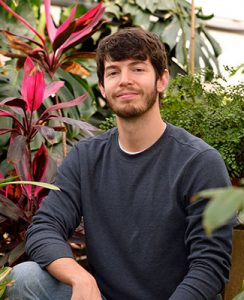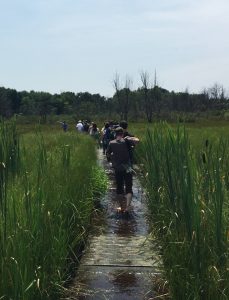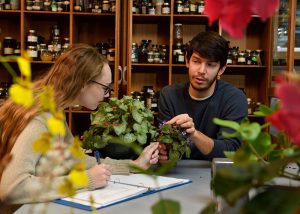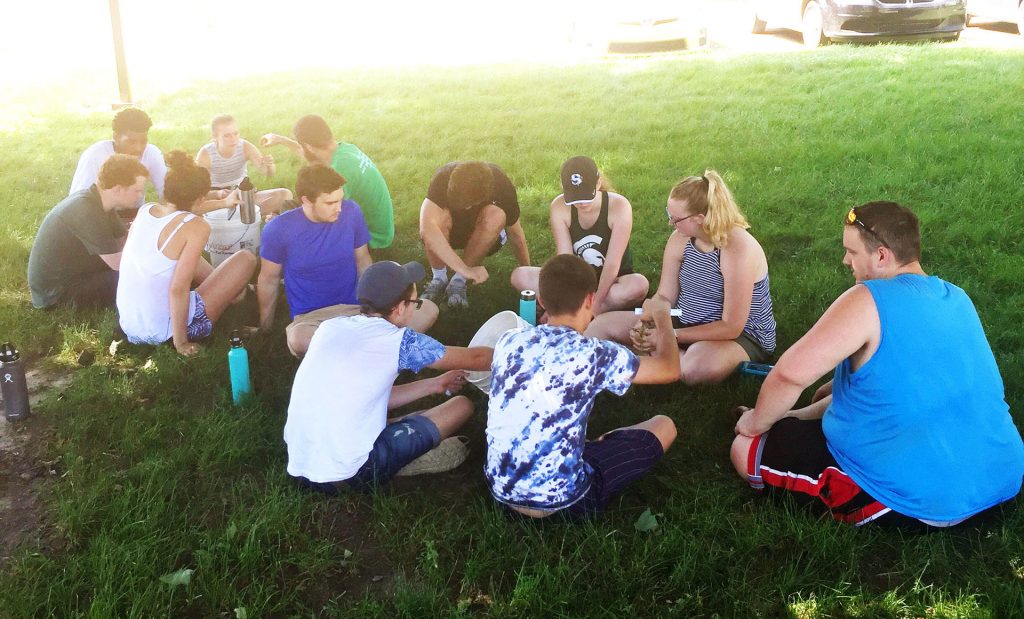Many of us remember having teachers that changed our lives and helped us learn in innovative ways. For his MSU students, Matthew Kolp is that teacher.
Kolp, who is a graduate teaching assistant at KBS this summer, received an Excellence-in-Teaching Citation from MSU this year, one of only six graduate students to gain the title.
Kolp was a teaching assistant for the Launch Your Major courses (Statistics for Ecologists, and Organisms and Populations) at KBS during the first session of courses this summer, and is now a teaching assistant for Wetland Ecology in the second session.
His experience teaching courses at KBS has been different from the familiarity of main campus, but offers exciting new opportunities for his students to learn.
In classes at KBS, students often spend all day outside in the field, as opposed to traditional one-to-two hour indoor classes. This gives Kolp the chance to cover multiple topics in a single day.
Because of this chance to dive deep into the course’s content, “Students see and can explain the bigger picture – the connections between topics in biology and ecology,” Kolp said. “The students are enjoying themselves, and really relish the opportunities to encounter the organisms that they are learning about.”
Students in Kolp’s classes get to visit a variety of natural areas around KBS, like the Bird Sanctuary, Lux Arbor, and the Kellogg Forest. Doing group work with a small class size (18 students or less) breeds collaboration between students and gives them even more opportunities for growth.
Kolp takes a pragmatic approach to teaching, staying goal-oriented and building his courses using backward design.
“[This strategy] helps me to first visualize the learning goals for my students (what I want them to be able to do when they finish class for the day or the semester),” said Kolp. “Then, I can begin working on what I need to create (assessment items like homework or exam questions) that will provide evidence that students can achieve those goals. The lesson plan is often the last thing I develop.”
His teaching methods have garnered him not only the Excellence-in-Teaching Citation as well as two years as a Future Academic Scholars in Teaching Fellow, but also rich appreciation from his students for his creative, approachable, and engaging style.
Now a doctoral graduate from MSU’s Department of Plant Biology, where he studied the fungal community of diseased trees to combat the effects of chestnut blight, Kolp is thinking big about the value of making science accessible to students and the public.
“Science should guide policy of our public interests,” said Kolp. “I think a scientifically literate public will ensure that our public interests remain beneficial and prosperous to humanity into the future, as stewards of the environment and preserving the biodiversity that is still here.”





A legacy of conservation; a commitment to sustainability.
3700 E. Gull Lake Drive
Hickory Corners, MI 49060
(269) 671-5117
info@kbs.msu.edu